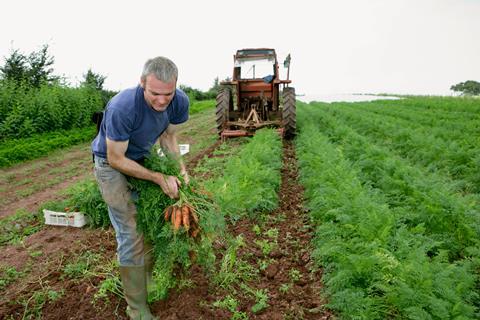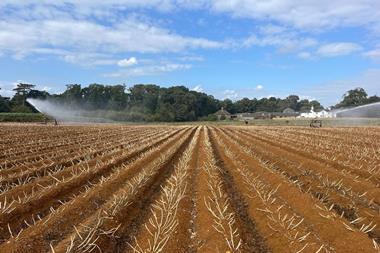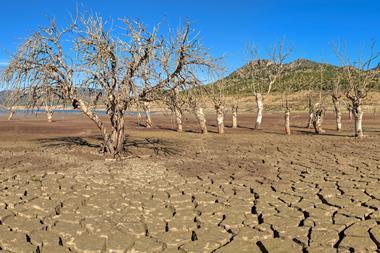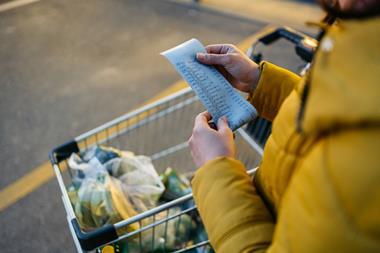
UK consumers could face veg shortages by the autumn if the current spell of hot weather continues, growers have warned.
Carrot growers are “gambling” on using all their water now to keep core crops growing in the hope that rain will come before later crops come into their key growing season.
Not only is this risky and may mean there is no water left for late-season crops, it is also making them “very, very expensive to grow”.
“We’re sort of gambling a bit at the moment,” Rodger Hobson, chairman of the British Carrot Growers Association, told The Grocer. “We’ve committed the majority of our water resource to early crops.”
Early crops are harvested in July, August and September and the hope is that the rain will “come in the next few weeks, months and that will be enough to make the difference on the rest of the main crop which is for October through to next June”.
He said rain coming in the next month was not “impossible” but “it could quite likely continue the bloody drought all summer”.
“If it falls down with rain all August it will be sort of good, but if it doesn’t, it’ll be very serious,” he warned.
He added that it was also difficult to predict with most weather forecasts based on historic average data, which is becoming less accurate as weather patterns become more extreme and unpredictable.
England has had its warmest June on record, while the UK has experienced its second warmest since the series began in 1884, according to provisional Met Office statistics.
Read more: Farmers urged to conserve water and supplies as dry weather bites
It comes as UK arable farmers have reported a record early harvest this summer, with temperatures of around 34°C causing crops to shut down and shrivel in the field.
“Temperatures of 34°C really bugger up crops,” said south Cambridgeshire arable farmer Martin Lines. “They can’t function and start dying off, shutting down and shrivelling, while we’re also seeing warm winds that compound things by working to pull moisture out of the plants in the field.”
Lines is preparing to harvest up to three weeks early for the first time ever in order to try and arrest the dry weather from causing further damage.
This would lead to challenges in storage, with extra costs needed to keep crops cool after harvest.
“We won’t see empty shelves immediately, but a poor harvest will mean more imports from overseas, although both Europe and the US farmers are also struggling with heat this year,” he said.
“It is beginning to mean farmers take less risky choices,” he said. “Why invest tens of thousands in growing a really expensive crop, like potatoes, if you’re not sure you will get a return in six to nine months’ time?”
Losing confidence
New research from the Energy & Climate Intelligence Unit revealed over 80% of farmers are concerned about the impact of climate change on their ability to make a living. Four-fifths say extreme weather has hit productivity and three-quarters have experienced financial losses.
Only 2% of farmers have not experienced extreme weather in some form, meanwhile 78% have been impacted by drought and over a half by heatwaves.
“Beyond farmers, the scale of these climate impacts also calls into question the UK’s food security in the face of climate change-driven extreme weather,” said Tom Lancaster, land, food and farming analyst at ECIU. “We need to be taking these risks more seriously, with more support for farming to adapt and build resilience, as well as more urgent action to help farmers reduce their own emissions.”



















No comments yet